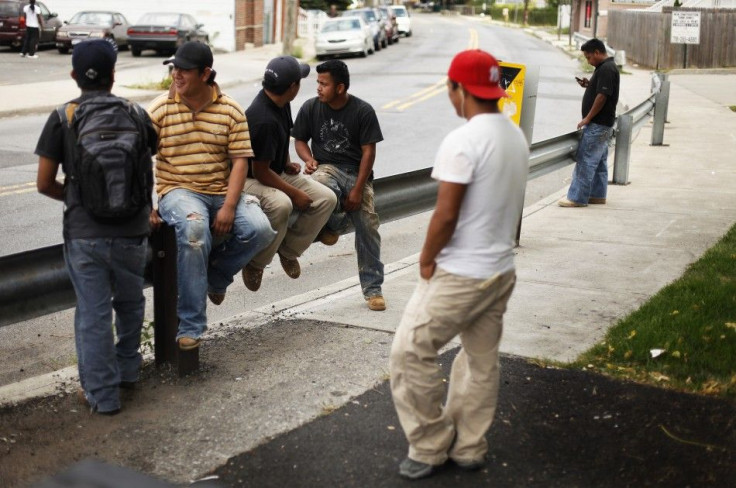Immigration Attorneys Difficult to Access, Often Incompetent: Report

Immigrants facing deportation largely rely on inept lawyers or navigate the complexities of immigration law without any legal help, according to a new study that describes a modern immigration representation crisis.
The report, compiled by a group of lawyers and researchers with the guidance of U.S. Court of Appeals Judge Robert A. Katzmann, underscores the steep hurdles immigrants in the New York court system must clear as they seek to fight to remain in the United States. The rate of deportations has soared in recent years, exacerbating longstanding issues that include a dearth of qualified lawyers and barriers to accessing representation. The number of immigrants without representation has almost doubled since 2000.
Those difficulties flow from the fact that in immigration proceedings, unlike in criminal court, there is no constitutional guarantee of free counsel. For even a minor offense -- the authors cite the hypothetical example of jumping a subway turnstile -- an undocumented immigrant would be entitled to an attorney.
If, however, the resulting conviction triggers removal proceedings, where that same noncitizen can face months of detention and permanent exile from her family, her home, and her livelihood, she is all too often forced to navigate the labyrinthine world of immigration law on her own, without the aid of counsel, the authors note.
Immigrants With Grounds to Fight Removal Are Less Successful Without an Attorney
Immigrants who have legitimate grounds to fight a removal order are far less successful when they do not have an attorney. Immigration law is notoriously complex and opaque -- immigrant advocates often compare it to the tax code -- and many immigrants have a poor grasp of English.
The study found a huge gap in quality between the small number of pro bono attorneys or attorneys employed by nonprofits and private lawyers, who represented 93 percent of cases. Many immigrants are unable to pay for private lawyers, but those who do often get attorneys who are ignorant of immigration law or who appear in court without knowing the basic facts of the case they are arguing. An anonymous survey of judges conducted by the report's authors deemed nearly 50 percent of attorneys either inadequate or grossly inadequate, solidifying a common perception that many immigration attorneys unscrupulously prey on immigrants.
Anyone who has spent time in the New York Immigration Courts or reviewed the proceedings conducted therein will not need a study to identify the serious problem of inadequate counsel that exists in those courts, the authors wrote.
The problems were compounded when immigrants were placed in detention centers. In nearly two thirds of the cases reviewed, immigrants detained in New York were transfered to detention centers in states like Texas or Louisana. Immigrants in detention face restricted access to counsel, a phenomenon detailed in a recent report on detention centers, and are less likely to find lawyers unable to take their case. The use of detention centers has grown as the number of deportations has rapidly expanded.
The report found vast disparities in the outcomes of cases, depending on whether immigrants had lawyers or were placed in detention. Immigrants who received counsel and were never placed in detention centers were successful 74 percent of the time, a number that plummeted to 3 percent for immigrants who were placed in detention and did not have counsel.
© Copyright IBTimes 2025. All rights reserved.





















